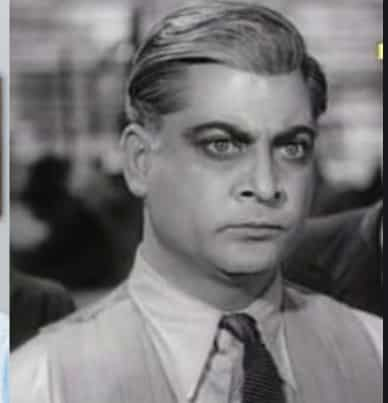Position ma puncture -- If you have any doubt about what this phrase could possibly mean, think like your favourite Parsi. If that doesn't work, wait for Sooni Taraporevala and Meher Marfatia's Parsi Bol to hit the stands next month. Averil Nunes presents a preview.
Book: Parsi Bol
Author: Sooni Taraporevala & Meher Marfatia
Publisher: Good Books, 49/ 50 Books
Pages: 168
Price: Rs 500
How many Parsis does it take to make you laugh? If you know some Parsis, you will realise that sometimes even one is just too much. So when two Parsi women decide to work on a book that captures the community’s most used, misused and abused idioms for posterity, you know you’re guaranteed a belly-full of laughs. Add to this, illustrations by Hemant Morparia and Farzana Cooper; the involvement of book artist Priya Pereira in the design; and Parsi Bol is starting to sound like a collector’s edition. But we’re getting ahead of ourselves.
Let’s acquaint you with the authors first. If you’ve watched Salaam Bombay!, Mississippi Masala, Such A Long Journey or The Namesake, you’ll know how Sooni Taraporevala’s scriptwriting translates on the big screen. And if you’ve watched Little Zizou you’ve already had a glimpse of her film-making abilities. What you may not be aware of is that Taraporevala started off as a photographer and her images have been exhibited the world over.
Even if you don’t receive the Gujarati newspaper Jam-e-Jamshed, chances are you’ve read one of Meher’s columns in the Sunday papers. A writer and editor since 1985, Meher Marfatia has worked with The Illustrated Weekly of India, Marg Publications, The Art India Magazine and Verve.

The two women first collaborated a few years ago, when Taraporevala photographed yesteryear actors and technicians (who were still around) for Marfatia’s book Laughter In The House: 20th-Century Parsi Theatre and encouraged her to self-publish. Parsi Bol, self-published by Taraporevala’s Good Books and Marfatia’s 49/50 Books, was fortunate to find “a kind and generous sponsor in Cyrus Guzdar”.
With parsibol@gmail.com set up and publications like Parsiana, Jam-e-Jamshed and Hamazor spreading the word, the Parsi community contributed to this book with generosity and gusto over wi-fi, through hand-written notes and of course word of mouth. Some contributions placed things in a situational or geographic context; others were just memories of things said or overheard.
“Most of the contributions are from older people, because the younger generation is more Hindi-speaking than Gujarati-speaking. Of course, we did get contributions from the younger lot, things they had heard their parents or grandparents say,” mentions Taraporevala.
Imagism, alliteration, wit and of course the predictable (or is it unpredictable) Parsi humour run through the book that they have been working on since February 2012, though Taraporevala can’t remember which person or incident triggered her message to Meher that they should work on this book. Husta gher vusta (laughter makes the home) — every good Parsi knows this. Marfatia points out how Parsis tend to not have much of an appetite for tragedy, and even when theatre greats like Adi Marzban strayed from the path of humour, the audience was not too appreciative.

“My father gets very irritated when he has to go to the movies and is expected to cry,” says Taraporevala. “Humour has a large part to play in the community and that’s reflected in the way the language has evolved.” Insults, anatomy, animals, money...in Parsi conversations as in this book, nothing is off limits. Putting together this crowd-sourced affair (which sometimes generated different interpretations of the same idiom), could have been tedious, if it weren’t for the sheer hilarity of some of the phrases that were unearthed. Rutty Manekshaw, Taraporevala’s octogenarian aunt, was the “pivot” of this book, serving as the authority when it came to translation, clarification and verification.
What has the book added to Taraporevala’s and Marfatia’s lives? “Lots of fun and a little, no, a lot, of learning. We grew up with the language but the picturesque way it can be twisted is fresh.” says Marfatia. “And also the satisfaction of having done it despite the tedium,” adds Taraporevala. “At the end of the day it’s a good thing to have archived it, before it vanishes from people’s memories.”
Is this a book of, by and for the Parsis? “Anybody, who is a native Gujarati speaker will enjoy this book, that includes, Boris, Khojas and Hindu Gujaratis,” says Taraporevala. Of course, Gujarati speakers may relate to it better than the rest; however some of the phrases sound familiar, making us wonder if the language has evolved through osmosis and if other non-Parsis will find parallels too.
What’s their next project? “Nothing to do with Parsis,” quips Marfatia. “We don’t want to be slotted.”
Parsi Bol will be released in time for the 10th World Zoroastrian Congress in Mumbai next month.
Parsiisms — Imagine 'em, taste 'em, say 'em
PICTURE PHRASE: Chumna jheva pug, Feet like pomfrets, Large feet
SARCASM: Julebee jhevo seeddho, Straight as a jalebi, Very crooked
INSULT: Tel leva ja, Go get oil, Go to hell
FOOD: Kolmee thai guya, Became a prawn, Died
MEN & WOMEN: Raja ne gumee ranee ne chhaana thapti ani, The king chose for his queen the woman who made dung cakes, Love knows no barriers
MONEY: Lakshmi chandlo kurva aveh tareh mohnoo dhova nahi juvanoo, When the goddess of wealth Lakshmi comes to greet, don't go to wash your face, Make the most of an opportune time
![submenu-img]() Meet Gautam Adani’s ‘right hand’, used to work as teacher, he’s now Rs 1600000 crore…
Meet Gautam Adani’s ‘right hand’, used to work as teacher, he’s now Rs 1600000 crore…![submenu-img]() Meet actor who worked with Amitabh Bachchan, Aishwarya Rai, entered films because of a bus conductor, is now India's..
Meet actor who worked with Amitabh Bachchan, Aishwarya Rai, entered films because of a bus conductor, is now India's..![submenu-img]() Meet Bollywood star, who was a tourist guide, married 4 times, went bankrupt, his son died by suicide, then...
Meet Bollywood star, who was a tourist guide, married 4 times, went bankrupt, his son died by suicide, then...![submenu-img]() This actor made Sharmila Tagore forget her lines, once did film for Rs 100, could never be a superstar because..
This actor made Sharmila Tagore forget her lines, once did film for Rs 100, could never be a superstar because..![submenu-img]() Volkswagen Taigun GT Line, Taigun GT Plus launched in India, price starts at Rs 14.08 lakh
Volkswagen Taigun GT Line, Taigun GT Plus launched in India, price starts at Rs 14.08 lakh![submenu-img]() DNA Verified: Is CAA an anti-Muslim law? Centre terms news report as 'misleading'
DNA Verified: Is CAA an anti-Muslim law? Centre terms news report as 'misleading'![submenu-img]() DNA Verified: Lok Sabha Elections 2024 to be held on April 19? Know truth behind viral message
DNA Verified: Lok Sabha Elections 2024 to be held on April 19? Know truth behind viral message![submenu-img]() DNA Verified: Modi govt giving students free laptops under 'One Student One Laptop' scheme? Know truth here
DNA Verified: Modi govt giving students free laptops under 'One Student One Laptop' scheme? Know truth here![submenu-img]() DNA Verified: Shah Rukh Khan denies reports of his role in release of India's naval officers from Qatar
DNA Verified: Shah Rukh Khan denies reports of his role in release of India's naval officers from Qatar![submenu-img]() DNA Verified: Is govt providing Rs 1.6 lakh benefit to girls under PM Ladli Laxmi Yojana? Know truth
DNA Verified: Is govt providing Rs 1.6 lakh benefit to girls under PM Ladli Laxmi Yojana? Know truth![submenu-img]() Remember Abhishek Sharma? Hrithik Roshan's brother from Kaho Naa Pyaar Hai has become TV star, is married to..
Remember Abhishek Sharma? Hrithik Roshan's brother from Kaho Naa Pyaar Hai has become TV star, is married to..![submenu-img]() Remember Ali Haji? Aamir Khan, Kajol's son in Fanaa, who is now director, writer; here's how charming he looks now
Remember Ali Haji? Aamir Khan, Kajol's son in Fanaa, who is now director, writer; here's how charming he looks now![submenu-img]() Remember Sana Saeed? SRK's daughter in Kuch Kuch Hota Hai, here's how she looks after 26 years, she's dating..
Remember Sana Saeed? SRK's daughter in Kuch Kuch Hota Hai, here's how she looks after 26 years, she's dating..![submenu-img]() In pics: Rajinikanth, Kamal Haasan, Mani Ratnam, Suriya attend S Shankar's daughter Aishwarya's star-studded wedding
In pics: Rajinikanth, Kamal Haasan, Mani Ratnam, Suriya attend S Shankar's daughter Aishwarya's star-studded wedding![submenu-img]() In pics: Sanya Malhotra attends opening of school for neurodivergent individuals to mark World Autism Month
In pics: Sanya Malhotra attends opening of school for neurodivergent individuals to mark World Autism Month![submenu-img]() DNA Explainer: What is cloud seeding which is blamed for wreaking havoc in Dubai?
DNA Explainer: What is cloud seeding which is blamed for wreaking havoc in Dubai?![submenu-img]() DNA Explainer: What is Israel's Arrow-3 defence system used to intercept Iran's missile attack?
DNA Explainer: What is Israel's Arrow-3 defence system used to intercept Iran's missile attack?![submenu-img]() DNA Explainer: How Iranian projectiles failed to breach iron-clad Israeli air defence
DNA Explainer: How Iranian projectiles failed to breach iron-clad Israeli air defence![submenu-img]() DNA Explainer: What is India's stand amid Iran-Israel conflict?
DNA Explainer: What is India's stand amid Iran-Israel conflict?![submenu-img]() DNA Explainer: Why Iran attacked Israel with hundreds of drones, missiles
DNA Explainer: Why Iran attacked Israel with hundreds of drones, missiles![submenu-img]() Meet actor who worked with Amitabh Bachchan, Aishwarya Rai, entered films because of a bus conductor, is now India's..
Meet actor who worked with Amitabh Bachchan, Aishwarya Rai, entered films because of a bus conductor, is now India's..![submenu-img]() Meet Bollywood star, who was a tourist guide, married 4 times, went bankrupt, his son died by suicide, then...
Meet Bollywood star, who was a tourist guide, married 4 times, went bankrupt, his son died by suicide, then...![submenu-img]() This actor made Sharmila Tagore forget her lines, once did film for Rs 100, could never be a superstar because..
This actor made Sharmila Tagore forget her lines, once did film for Rs 100, could never be a superstar because..![submenu-img]() Mumtaz urges to lift ban on Pakistani artistes in Bollywood: ‘Woh log hum logon se...'
Mumtaz urges to lift ban on Pakistani artistes in Bollywood: ‘Woh log hum logon se...'![submenu-img]() Not Kiara Advani, but this actress was first choice opposite Shahid Kapoor in Kabir Singh, she rejected because...
Not Kiara Advani, but this actress was first choice opposite Shahid Kapoor in Kabir Singh, she rejected because...![submenu-img]() IPL 2024: Yashasvi Jaiswal, Sandeep Sharma guide Rajasthan Royals to 9-wicket win over Mumbai Indians
IPL 2024: Yashasvi Jaiswal, Sandeep Sharma guide Rajasthan Royals to 9-wicket win over Mumbai Indians![submenu-img]() IPL 2024: How can RCB still qualify for playoffs after 1-run loss against KKR?
IPL 2024: How can RCB still qualify for playoffs after 1-run loss against KKR?![submenu-img]() CSK vs LSG, IPL 2024: Predicted playing XI, live streaming details, weather and pitch report
CSK vs LSG, IPL 2024: Predicted playing XI, live streaming details, weather and pitch report![submenu-img]() RR vs MI: Yuzvendra Chahal scripts history, becomes first bowler to achieve this massive milestone in IPL
RR vs MI: Yuzvendra Chahal scripts history, becomes first bowler to achieve this massive milestone in IPL![submenu-img]() 'Yeh toh second tier ki bhi team nhi': Ramiz Raja slams Babar Azam and co. after 3rd T20I loss vs New Zealand
'Yeh toh second tier ki bhi team nhi': Ramiz Raja slams Babar Azam and co. after 3rd T20I loss vs New Zealand![submenu-img]() Mukesh Ambani's son Anant Ambani likely to get married to Radhika Merchant in July at…
Mukesh Ambani's son Anant Ambani likely to get married to Radhika Merchant in July at…![submenu-img]() India's most expensive wedding costs more than weddings of Isha Ambani, Akash Ambani, total money spent was...
India's most expensive wedding costs more than weddings of Isha Ambani, Akash Ambani, total money spent was...![submenu-img]() Meet Indian genius who lost his father at 12, studied at Cambridge, took Rs 1 salary, he is called 'architect of...'
Meet Indian genius who lost his father at 12, studied at Cambridge, took Rs 1 salary, he is called 'architect of...'![submenu-img]() Earth Day 2024: Google Doodle features aerial photos of planet's natural beauty, biodiversity
Earth Day 2024: Google Doodle features aerial photos of planet's natural beauty, biodiversity![submenu-img]() Meet India's first billionaire, much richer than Mukesh Ambani, Adani, Ratan Tata, but was called miser due to...
Meet India's first billionaire, much richer than Mukesh Ambani, Adani, Ratan Tata, but was called miser due to...






































)
)
)




)
)
)
)
)
)